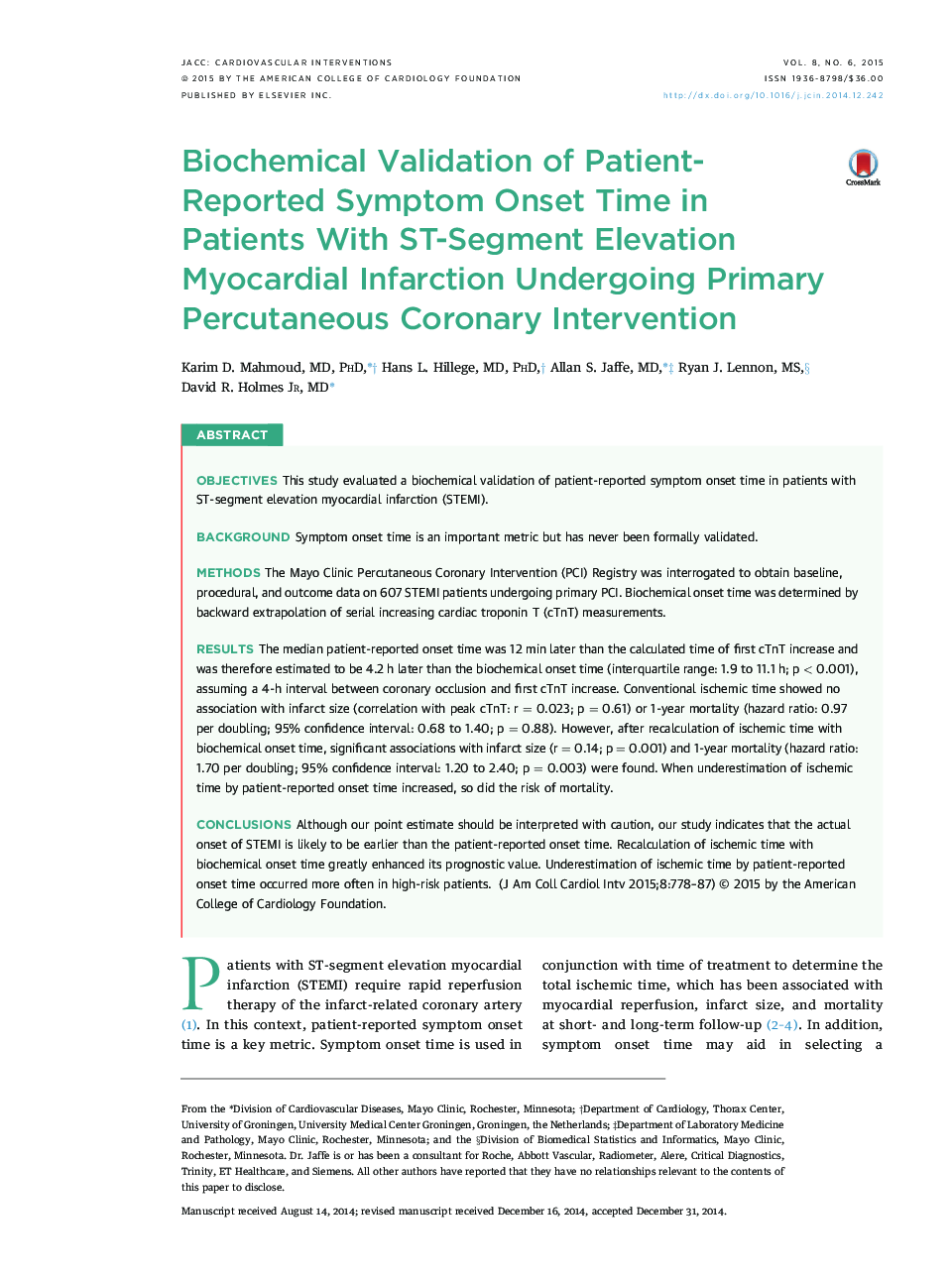| کد مقاله | کد نشریه | سال انتشار | مقاله انگلیسی | نسخه تمام متن |
|---|---|---|---|---|
| 5980652 | 1177010 | 2015 | 10 صفحه PDF | دانلود رایگان |

ObjectivesThis study evaluated a biochemical validation of patient-reported symptom onset time in patients with ST-segment elevation myocardial infarction (STEMI).BackgroundSymptom onset time is an important metric but has never been formally validated.MethodsThe Mayo Clinic Percutaneous Coronary Intervention (PCI) Registry was interrogated to obtain baseline, procedural, and outcome data on 607 STEMI patients undergoing primary PCI. Biochemical onset time was determined by backward extrapolation of serial increasing cardiac troponin T (cTnT) measurements.ResultsThe median patient-reported onset time was 12 min later than the calculated time of first cTnT increase and was therefore estimated to be 4.2 h later than the biochemical onset time (interquartile range: 1.9 to 11.1 h; p < 0.001), assuming a 4-h interval between coronary occlusion and first cTnT increase. Conventional ischemic time showed no association with infarct size (correlation with peak cTnT: r = 0.023; p = 0.61) or 1-year mortality (hazard ratio: 0.97 per doubling; 95% confidence interval: 0.68 to 1.40; p = 0.88). However, after recalculation of ischemic time with biochemical onset time, significant associations with infarct size (r = 0.14; p = 0.001) and 1-year mortality (hazard ratio: 1.70 per doubling; 95% confidence interval: 1.20 to 2.40; p = 0.003) were found. When underestimation of ischemic time by patient-reported onset time increased, so did the risk of mortality.ConclusionsAlthough our point estimate should be interpreted with caution, our study indicates that the actual onset of STEMI is likely to be earlier than the patient-reported onset time. Recalculation of ischemic time with biochemical onset time greatly enhanced its prognostic value. Underestimation of ischemic time by patient-reported onset time occurred more often in high-risk patients.
Journal: JACC: Cardiovascular Interventions - Volume 8, Issue 6, May 2015, Pages 778-787